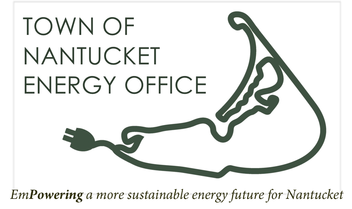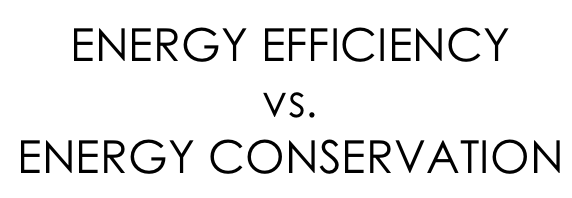|
Nantucket has ample opportunities to reduce energy use through simple changes in wasteful habits and the installation of more energy efficient products and equipment. In fact, anywhere energy is used, there are opportunities to increase efficiency and decrease energy waste. In most cases, energy efficiency measures will pay for themselves over time in the form of lower energy bills.
The Energy Office aims to take advantage of these opportunities through several key initiatives, such as:
We also seek to establish Nantucket as a model of energy efficiency by conducting energy assessment audits of municipal buildings and facilities, upgrading existing inefficient products and equipment, installing LED street lights, and encouraging the implementation of energy efficient technologies in Town construction projects. |
Energy efficiency
|
Getting Started: Assessing Baseline Energy Use
Understanding your current energy ("baseline") consumption is a key first step in embracing energy efficiency. Assessing baseline energy use allows for the identification of inefficient and wasteful energy loads and allows home and commercial building owners to evaluate areas of priority, with often limited financial resources. An energy assessment also provides a critical reference against which energy efficiency progress can be measured and energy goals can be demonstrated.
Energy Efficiency & Conservation Efforts
After establishing a baseline of energy performance and identifying under-performing areas, many measures can be implemented to help increase energy efficiency:
|
Energy Efficiency in 90 seconds!Help defeat DIRTY POWER, by signing up for a free Home Energy Assessment available to all Nantucket National Grid residents through the Mass Save Program!
|
Energy Saving Resources
Below are a few resources that offer information about residential and business energy and efficiency ideas, tips, and programs.

More Than 100 Ways to Improve Your Electric Bill
This energy-efficiency brochure provides tips to save energy in every major area of the home: heating, cooling, lighting, cooking, water heating, laundering, and refrigeration. Many tips also can improve your home’s comfort and convenience, while protecting the environment by using energy more wisely.
This energy-efficiency brochure provides tips to save energy in every major area of the home: heating, cooling, lighting, cooking, water heating, laundering, and refrigeration. Many tips also can improve your home’s comfort and convenience, while protecting the environment by using energy more wisely.
|
US EPA: ENERGY SAVERS (RECOMMENDED!)
Provides tips and steps to maximize a buildings energy performance. Massachusetts Department of Energy Resources: Provides information about energy efficiency programs and initiatives offered to residential and businesses/non-profits in Massachusetts; includes rebates, incentives, loan information and regulatory proceedings.
US Department of Energy, Office of Energy Efficiency and Renewable Energy (EERE):
EERE sponsors various initiatives to build awareness about energy efficiency and renewable energy topics and to coordinate efforts toward specific energy efficiency goals. ICLEI's Profiting from Energy Efficiency Guide:
Online guidebook that address an array of energy efficiency issues such as why to invest in energy efficiency and how to finance energy efficiency measures. Home Energy Efficiency Guides by Expertise.com
The resources on this site include chapters on heating and cooling, water conservation, efficient lighting, solar energy, and more. |
MASS SAVE: Savings through Energy Efficiency (RECOMMENDED!)
An initiative sponsored by Massachusetts’ gas and electric utilities and energy efficiency service providers that offers a wide range of services, incentives, trainings, and information promoting energy efficiency to help residents and businesses manage energy use and related costs. US EPA: Energy Efficiency:
Provides information on EPA’s clean energy programs, ENERGY STAR efforts, the Electronic Products Environmental Assessment Tool, and much more. Energy Education:
An Energy STAR partner that helps universities, colleges, K-12 schools, and large churches develop energy conservation plans. DSIRE (Database of State Incentives for Renewables & Efficiency):
DSIRE is a comprehensive source of information on state, local, utility and federal incentives and policies that promote renewable energy and energy efficiency. Established in 1995 and funded by the U.S. Department of Energy. |





